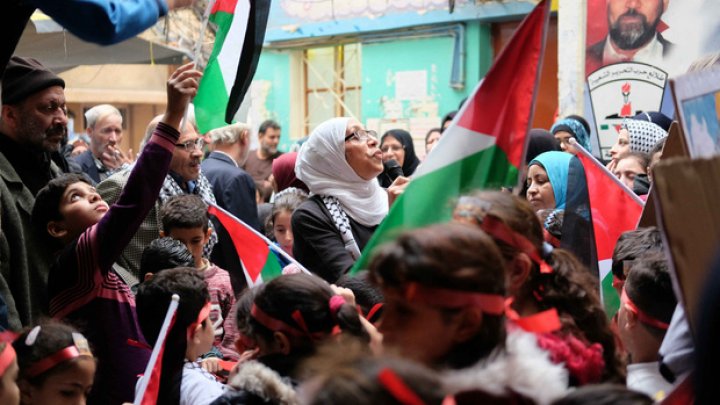Healthcare and education for Palestinians under threat
 publika
publika
In Burj Barajneh refugee camp, the UNRWA health centre is still treating patients, but for how much longer?
The UN's Palestinian aid programme is in the midst of a financial crisis after the United States withheld millions of dollars in funding.
The US was the biggest contributor to UNRWA's 1.3 billion US dollar budget, but this year is donating 360 million dollars less than was expected.
UNRWA pays for Palestinians to receive medical treatment here which they would otherwise not be able to afford.
Doctor Nasem Hamad says the staff here provide antenatal care for pregnant women and screen patients for serious diseases.
"This clinic is extremely important and as we know from our Palestinian patients and refugees, they say that without this clinic their case would be a crisis for them," he says.
But without funding, services like this will close down. And that very real possibility has got Palestinians worried.
"If you don't have money you will die while waiting near a hospital," says pregnant woman Meryem.
She says her neighbour's child died after she was refused treatment at a hospital.
Another Palestinian woman is concerned about schools closing.
"If they stop schools, the little ones, where should they go? I will tell you, they will go to terrorism," she says.
In Lebanon there are 12 refugee camps and 448,000 Palestinians - many of whom rely on UNRWA.
The organisation's director of affairs in Lebanon, Claudio Cordone, believes they only have enough money to run operations until the summer.
"Basically in Lebanon, what is at risk is that you have 27 primary health clinics stopping, we have all the kids, 37,000 in our schools who won't have any guarantee they can go back to school and we have huge number of people living below the poverty line, for whom we are the lifeline," he says.
And with the refugee camps being notorious for violence, weapons and militancy, he's concerned that trouble will erupt if UNRWA closes down.
"We could see unrest. It's very difficult to predict, but the stability argument is a real argument," he says.
Many households receive cash aid each month from UNRWA.
Sixty year-old Berrie Awad lives in Burj Al Barajneh camp. She's disabled and relies on UNRWA for medical treatment and money. Her dilapidated home has needed repairs for six years and doesn't even have a proper toilet.
"If UNRWA stops helping, we live without schools, no medication, we die at the hospital doors, our children will live on the streets. What would happen?" she asks.
The United Nations received pledges of nearly 100 million US dollars in new funding at a conference in Rome in March. But it is still facing a nearly 350 million US dollar shortfall this year.